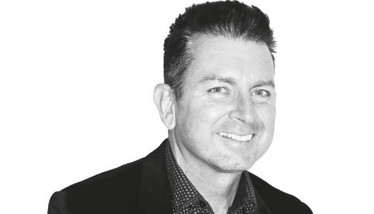Knowledge Is Power – and Progress
Scientists must come together to share experiences, accumulate evidence, and bring about change in cannabis policy.
Paul Mavor | | Opinion
When I saw data outlining the toll of pharmaceutical opiates in the US, I knew that an alternative was desperately needed – over 30,000 largely avoidable deaths in a single year. As a pharmacist who dispenses opiates myself, I couldn’t help but feel partly responsible. Conversely, there are little-to-no recorded deaths associated with cannabis abuse. And that got me thinking.
The rise of the global medical cannabis industry has been equated to the dot.com boom of the late nineties. We’ve seen explosive growth that has been spurred on in part by financiers, but also by the opioid crisis itself and the need for novel chronic pain treatments. The resulting wave of legalization across the globe and strong investment have been tempered by regulators with the same mindset that saw cannabis banned for the last 80 years. Nevertheless, legislation is changing and research is booming, gifting us with a strong evidence base for the use of cannabis across multiple medical indications.

When I saw data outlining the toll of pharmaceutical opiates in the US, I knew that an alternative was desperately needed – over 30,000 largely avoidable deaths in a single year. As a pharmacist who dispenses opiates myself, I couldn’t help but feel partly responsible. Conversely, there are little-to-no recorded deaths associated with cannabis abuse. And that got me thinking.
The rise of the global medical cannabis industry has been equated to the dot.com boom of the late nineties. We’ve seen explosive growth that has been spurred on in part by financiers, but also by the opioid crisis itself and the need for novel chronic pain treatments. The resulting wave of legalization across the globe and strong investment have been tempered by regulators with the same mindset that saw cannabis banned for the last 80 years. Nevertheless, legislation is changing and research is booming, gifting us with a strong evidence base for the use of cannabis across multiple medical indications.
Now, diverse products are starting to hit global markets, including oils, capsules, creams and inhalers. Many of these are entering clinical studies to compare efficacy and safety with existing drugs and placebos.
Some medical professionals are beginning to view cannabis as a valid treatment option for patients with chronic illness. And yet, stigma persists. I myself was guilty of holding negative presumptions at one time; I expected my first cannabis event – the Cannabis Science Conference in Portland (or Pot-land, as I like to call it) – to consist almost entirely of fire-twirling, tie-die-wearing hippies doing relatively little science. What I found, however, was a focused community of scientists and clinicians – and that changed my perception of the field.
In part inspired by the people we met there, my wife, Sharlene, and I returned home to set up a non-commercial seminar series to combat misinformation and to raise the profile of cannabis within the Australian medical and scientific communities. Our seminars featured a range of healthcare professionals who presented the positives and negatives of medical cannabis – all based on scientific evidence. An array of incredible speakers came out of the woodwork to participate – some of whom had been studying cannabis for up to 30 years.
The response to our seminars was amazing, with even more speakers emerging to participate in the second and third rounds. Question and answer sessions were extremely popular – and often lead to extended conversations that spilled over into local bars until the late evening. Perhaps some of the best speakers were patient advocates, who really brought the story to life by highlighting the human impact of the field. All things considered, the seminars taught me that people are hungry for information on this topic. And who can blame them?
Off the back of this success, we’re starting a grassroots (excuse the pun) network of UK healthcare professionals interested in medical cannabis. Seminars are once again part of our strategy, with upcoming events in London, Manchester and Glasgow (for more information, click here). We hope to open up sensible conversations on what cannabis can treat – but also what limitations exist. The current prohibition-style access scheme in the UK needs to change. But change will only come when health professionals embrace cannabis as another treatment option rather than see it as fringe medicine – and, for that, they need evidence and an open dialogue with the community.
The UK may be the start of its journey. Australia, on the other hand, is three years into its legal-medical cannabis framework; recreational cannabis remains illegal and medical cannabis is just starting to get traction. In this time, the system for prescribers has been streamlined considerably – from multiple processes over two months to an online form often approved within 24 hours. What’s more, we’ve seen a massive growth in the amount of prescriber information and educational courses. The overall result? An exponential increase in patient approvals – we expect to see 20,000 by the end of 2019 in Australia.
As a community, we need to come together to separate fact from fiction by providing empirical evidence for cannabis in all its medical applications.
Director at Health House International, Perth, Australia.












